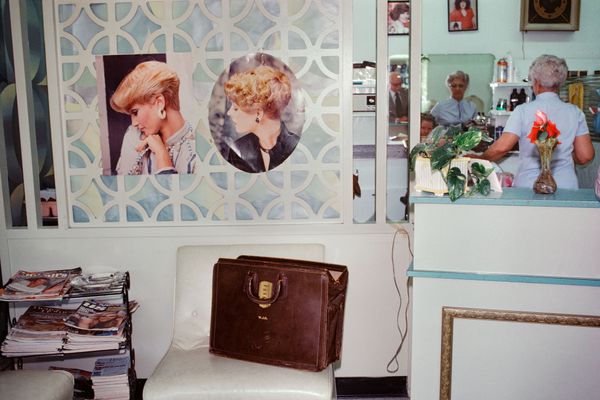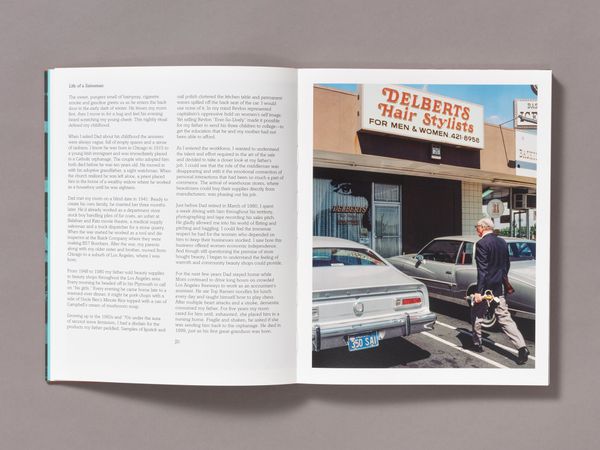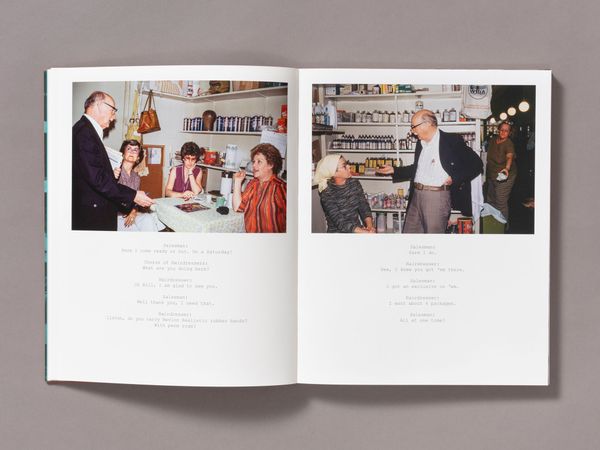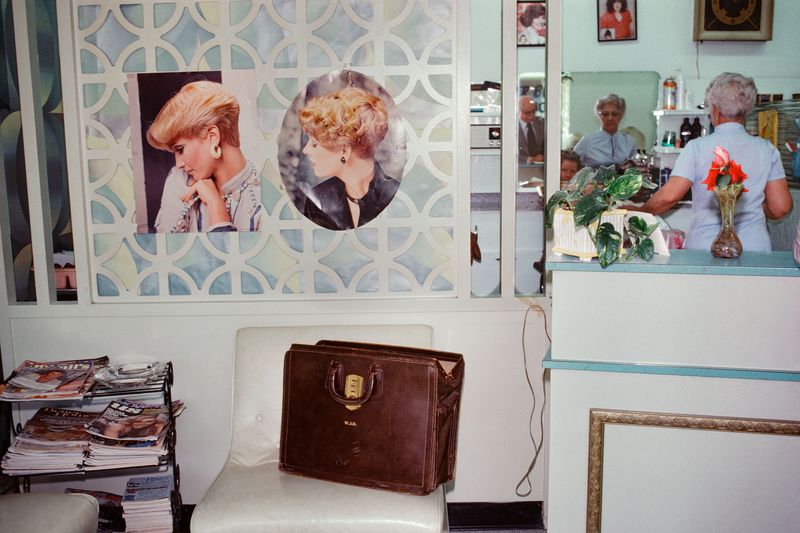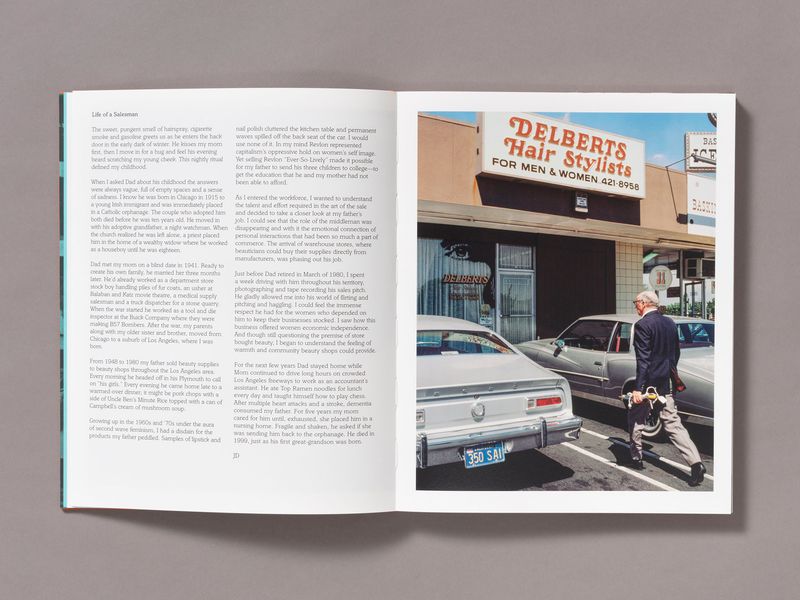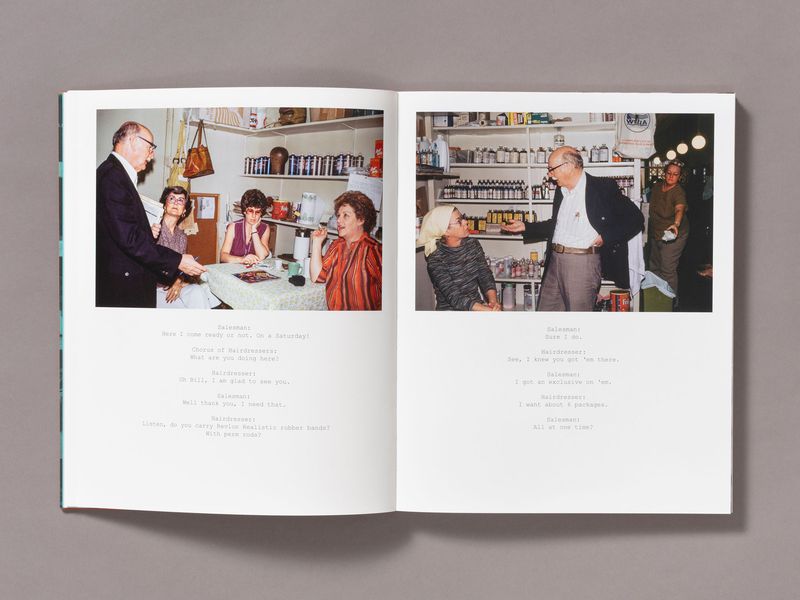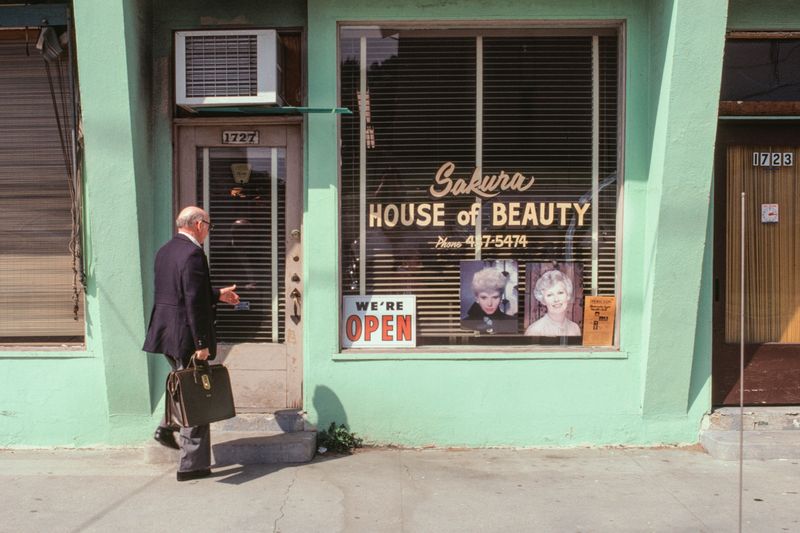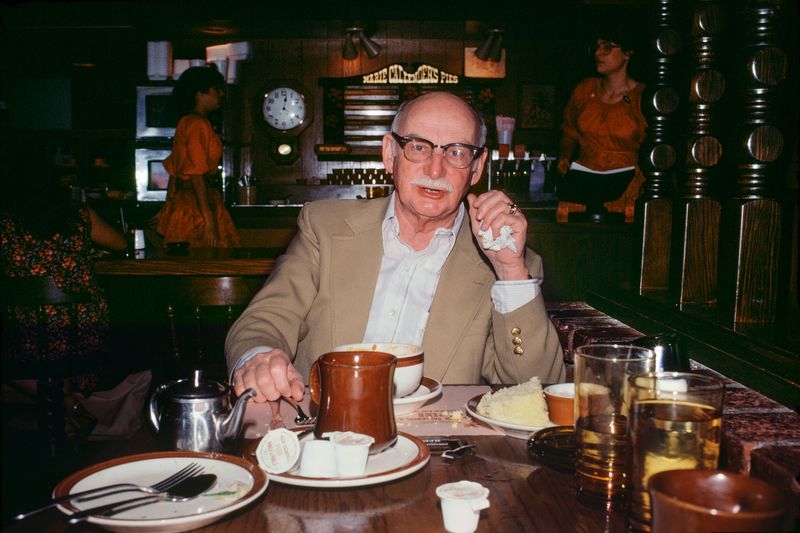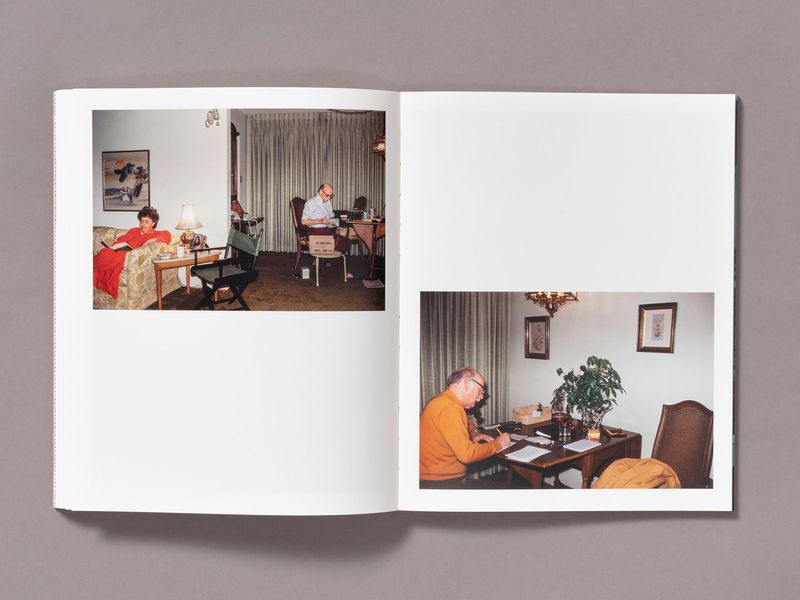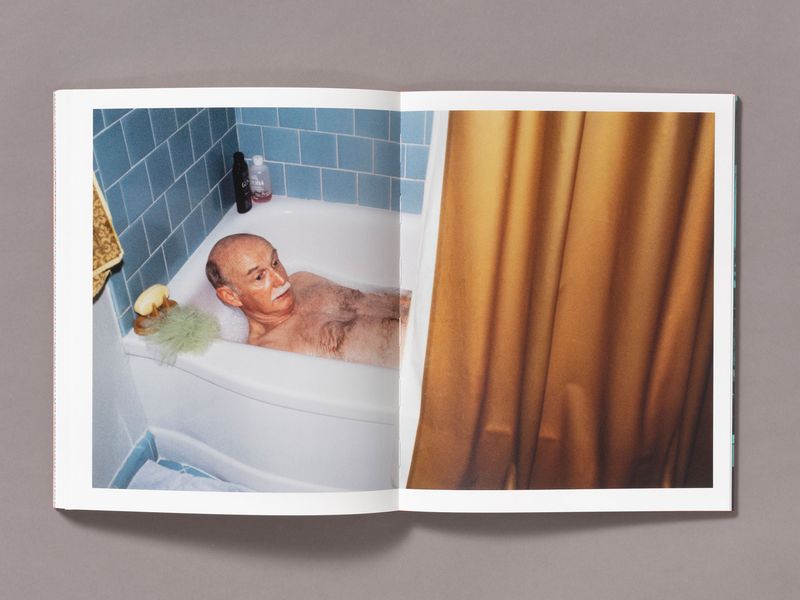Photobook Review: Too Many Products Too Much Pressure by Janet Delaney
-
Published22 Oct 2025
-
Author
Too Many Products Too Much Pressure is a photobook about a father who sells beauty products to California beauty salons at the turn of the 1980s. It’s a book about love, about understanding, about a way of earning a living that has all but disappeared.
It’s 1980 and Bill Delaney is 65 years old. He’s on the cusp of retiring from his job selling beauty products to Californian hairdressers. It’s a job he’s done for most of his life; it’s a job he loves, it’s a job that is going to end soon, it’s a job that his daughter, Janet Delaney, has decided to photograph.
She enters his world of ‘flirting and pitching and haggling’ and discovers a world of ‘warmth and community’ that perhaps brings a new understanding to who her father is and the job that he has done for 32 years.
It’s this warmth that is at the heart of the book. It begins with a picture of Bill entering Delberts Hair Stylists for Men and Women, products in hand as he approaches the strip mall store. Soon, he’s in the backroom, lighting cigarettes, negotiating deals, giving his warmth to the women who run these independent stores.
Interspersed among the images are conversations Bill has with the women. He hears about what sells and what doesn’t, he gives discounts and makes deals, he wonders at the multiple roles the beauty salon has; it’s not just a place to get your hair done, it’s a place of community, togetherness, and sharing. It’s a place for therapy, where the therapist is there to listen, empathise, and affirm.
The book is also a record of beauty shop design. There are Lady D haircuts, Farrah Fawcett feather cuts, old lady perms, and Purdy cuts. We see hair care photographs, racks of ‘Smokey Sensations’ lipstick and nail polish, wood-panelled interiors, and details from sales rep meetings.
One snippet of text reads, ‘Grey has been the big problem all over the United States… Put some pigment in it and you’ve got it made… Ronald Reagan uses it.’
And all the time, the number of products seems to increase, and with it, the paperwork that Bill must do. We see it in his Plymouth, invoices and receipts scattered across the ketchup-stained seats; we see it in the back offices that Janet Delaney photographs.
In the box architecture warehouses Bill visits, there are cardboard boxes full of shampoo pumps and perming equipment, there are gels and oils in faded storage units. And as the book progresses, Bill gets increasingly weary.
“You look tired, Bill, what’s wrong?” asks a hairdresser.
”Do I look tired?” says Bill. “I feel great! Do I? I’m not supposed to look tired.
I’m supposed to look happy.”
The text develops, and now, instead of the more gentle approaches of the opening pages, there is more of a sense of a hard sell, more aggressive seeking of discounts, and bypassing the salesman altogether. Why give Bill 20 per cent when you can buy directly from the supplier. The frustrations increase, and Bill starts planning his retirement.
We find out more about the difficulties Bill is having from his wife’s text. We hear about the hours he worked, the commitment it took, the time spent away from family, the paperwork, the mistakes, the annoyances. We also hear about what Bill was like as a man, the empathy he felt for the women he served, and his god given ability to make people feel good about themselves.
The final set of pictures shows him at home, hugging his wife and doing his paperwork. And then he’s in the bathtub, his exhausted eyes staring into the distance, the charm and the patter depleted, his working life over.
There are some great books about working fathers. Family Business by Mitch Epstein is one, and Pictures From Home by Larry Sultan is another. Like Sultan’s father, Bill Delaney moved from Chicago to California, like Sultan’s father, work is a large part of Bill’s identity. It’s woven into the patterns of his life, into the fragments of his soul.
And when that work ends, one feels that a small part of him dies. It’s a beautiful book, a memoir that is about family, about being a photographer, about work, and the jobs that people once did. It’s also about the end of an era, one in which Bill Delaney started his life in 1915 in a Catholic orphanage. After retiring, he lived at home until he was consumed by heart attacks, strokes, and dementia. ‘For five years my mom cared for him,’ Janet Delaney writes, ‘until, exhausted, she placed him in a nursing home. Fragile and shaken, he asked if she was sending him back to the orphanage. He died in 1999, just as his first great-grandson was born.’
--------------
Too Many Products Too Much Pressure by Janet Delaney is published by Deadbeat Club
Life Of A Salesman Essay by the artist Janet Delaney
Wife Of A Salesman Essay by the artist's mother Connie Delaney
112 Pages
Hardcover with open spine
Full Color Offset
8.25” x 10.25”
ISBN: 978-1-952523-31-1
--------------
All images © Janet Delaney
--------------
Janet Delaney is an American photographer known for her poignant documentation of the intersection of work, home, and shifting cityscapes. Supported by research and interviews, her projects reflect a deep engagement with the passage of time and photography's role as a historical record. Delaney gained recognition for her South of Market series, chronicling 1980s San Francisco gentrification. Her later projects, Public Matters and Red Eye to New York, captured civic life and street scenes in San Francisco and New York during the 1980s. A 2020 Guggenheim Fellow, Delaney has received three NEA grants and held a one-year San Francisco Arts Commission residency. Her work is in major collections, including the San Francisco Museum of Modern Art, the de Young, and the High Museum and the Museum of Fine Art Houston.
Colin Pantall is a photographer, writer and lecturer based in Bath, England. His next online courses and in person workshops begin in January, 2026. More information here. Follow him on Instagram.
